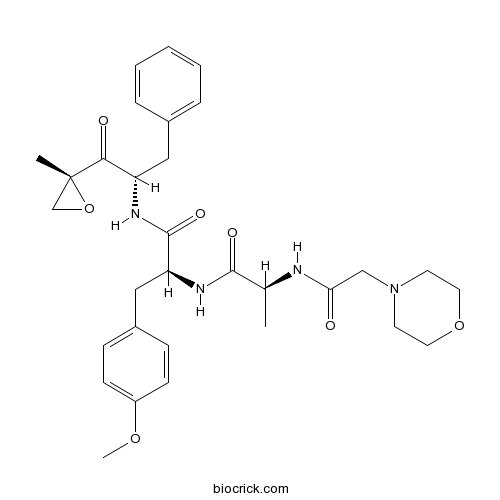Ubiquitination
Ubiquitination (or ubiquitylation) is an enzymatic post-translational modification in which a ubiquitin protein is attached to a substrate protein. This process most commonly binds the last amino acid of ubiquitin (glycine 76) to a lysine residue on the substrate.
Products for Ubiquitination
- Cat.No. Product Name Information
-
BCC2092
MLN2238
Ixazomib (MLN2238) is a selective, potent, and reversible proteasome inhibitor, which inhibits the chymotrypsin-like proteolytic (β5) site of the 20S proteasome with an IC50 of 3.4 nM (Ki of 0.93 nM).
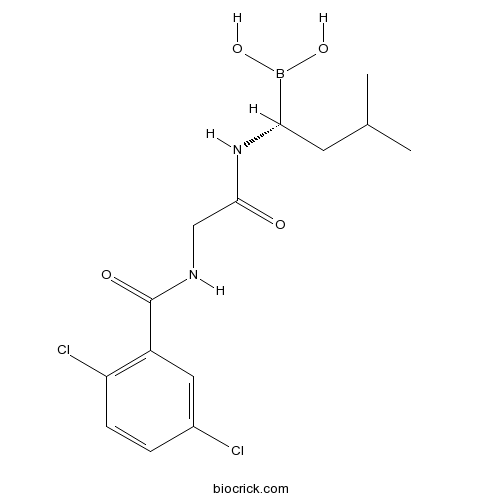
-
BCC2091
MLN9708
Ixazomib Citrate (MLN9708) immediately hydrolyzed to MLN2238, the biologically active form, on exposure to aqueous solutions or plasma. MLN2238 inhibits the chymotrypsin-like proteolytic (β5) site of the 20S proteasome with IC50/Ki of 3.4 nM/0.93 nM in cell-free assays, less potent to β1 and little activity to β2. Phase 3.
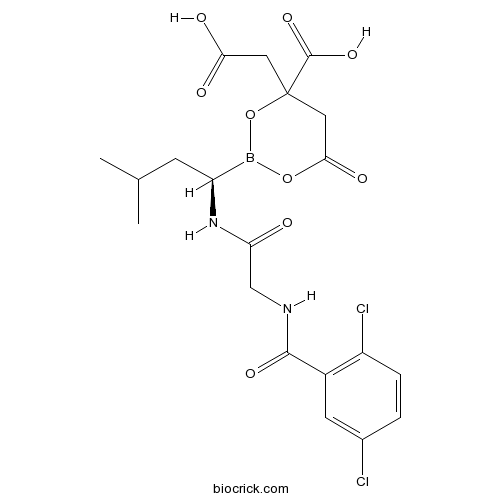
-
BCC6420
Spautin-1
Spautin-1 is a specific and potent autophagy inhibitor which inhibits ubiquitin-specific peptidases, USP10 and USP13 with IC50s of 0.6-0.7 μM.
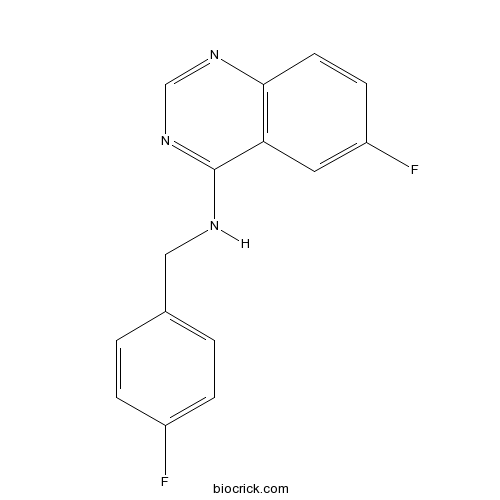
-
BCC3596
Dihydroeponemycin
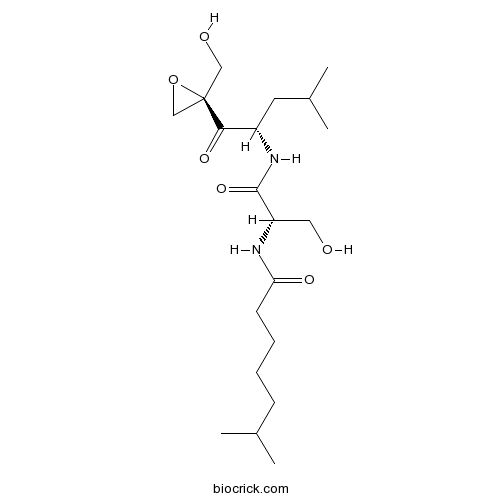
-
BCC4383
Sulfacetamide Sodium
Sulfacetamide Sodium is an anti-infective agent that is used topically to treat skin infections and orally for urinary tract infections.
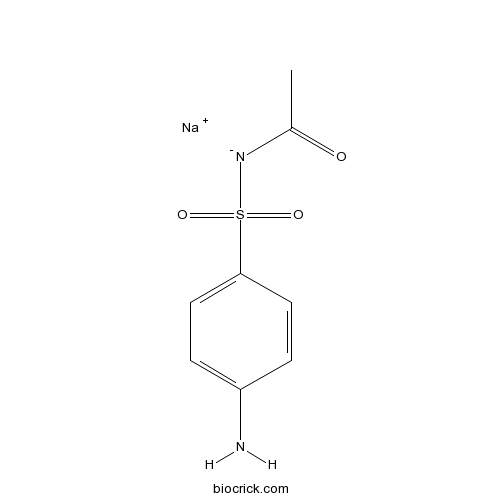
-
BCC7988
NSC 624206
NSC624206 is an inhibitor of ubiquitin E1 (UBA1), with an IC50 of ~9 μM. NSC624206 specifically blocks ubiquitin-thioester formation (IC50=13 μM) but has no effect on ubiquitin adenylation.
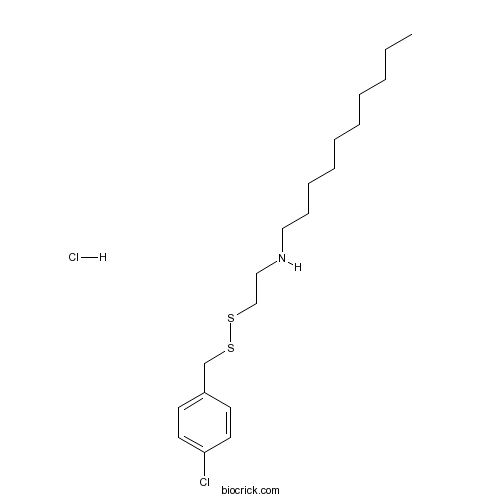
-
BCC4200
CC0651
CC0651 is an allosteric inhibitor of the human Cdc34 ubiquitin-conjugating enzyme. CC0651 potently (IC50=1.72 μM) inhibits the ubiquitination of p27Kip1, as confirmed by dose-response analysis.
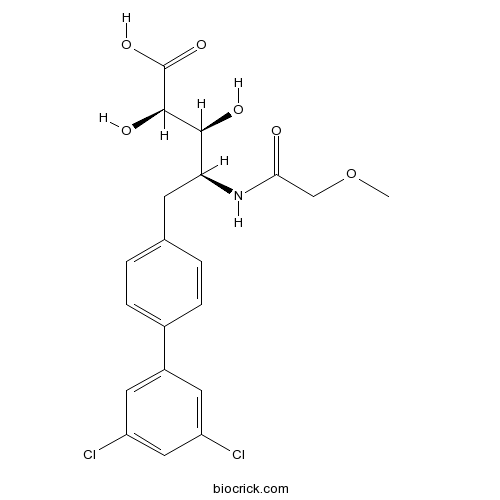
-
BCN1841
Lactacystin
Lactacystin, an antibiotic Streptomyces spp. metabolite, is a potent and selective proteasome inhibitor with an IC50 of 4.8 μM for 20S proteasome. Lactacystin also inhibits the lysosomal enzyme cathepsin A. Lactacystin inhibits cell growth and induces neurite outgrowth.
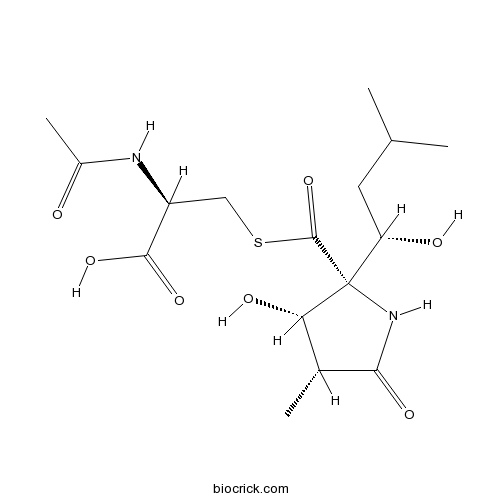
-
BCC1227
MG-132
MG-132 (Z-Leu-leu-leu-al) is a potent proteasome and calpain inhibitor with IC50s of 100 nM and 1.2 μM, respectively. MG-132 effectively blocks the proteolytic activity of the 26S proteasome complex. MG-132, a peptide aldehyde, also is an autophagy activator. MG-132 also induces apoptosis.
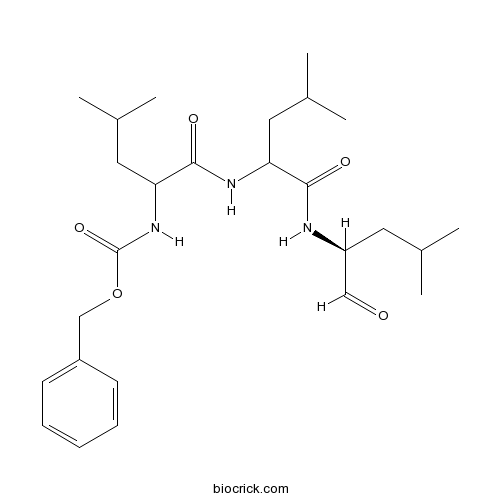
-
BCC1237
MG-115
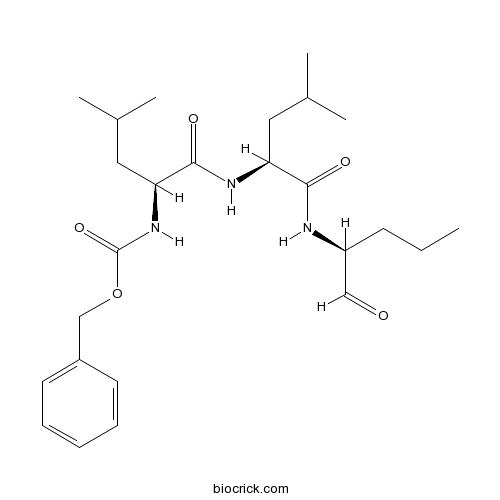
-
BCC1235
Epoxomicin
Epoxomicin (BU-4061T) is an epoxyketone-containing natural product and a potent, selective and irreversible proteasome inhibitor. Epoxomicin covalently binds to the LMP7, X, MECL1, and Z catalytic subunits of the proteasome and potently inhibits primarily the chymotrypsin-like activity. Epoxomicin can cross the blood-brain barrier. Epoxomicin has strongly antitumor and anti-inflammatory activity.
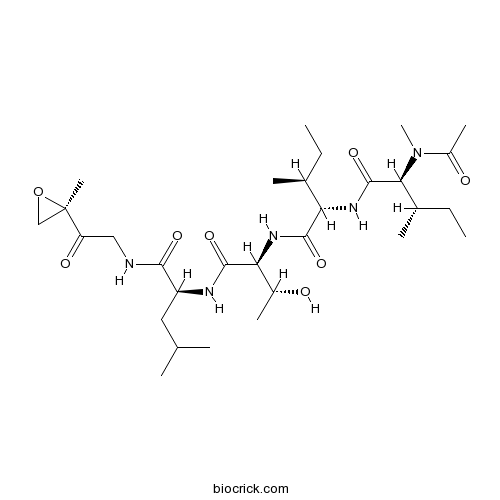
-
BCC4977
NMS-873
NMS-873 is a potent, selective allosteric VCP/p97 inhibitor with IC50 value of 30 nM.
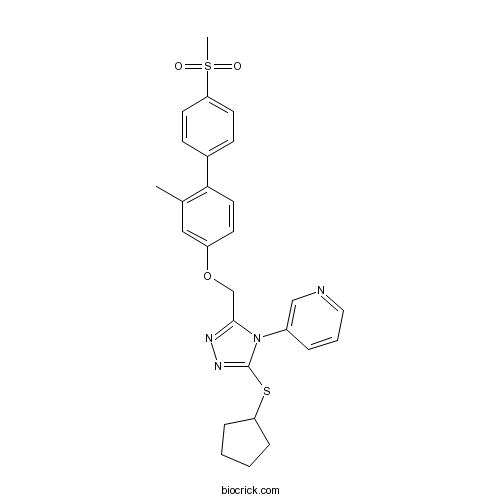
-
BCN2292
Vinblastine Sulfate
Vinblastine sulfate is a cytotoxic alkaloid used against various cancer types. Vinblastine sulfate inhibits the formation of microtubule and suppresses nAChR with an IC50 of 8.9 μM.
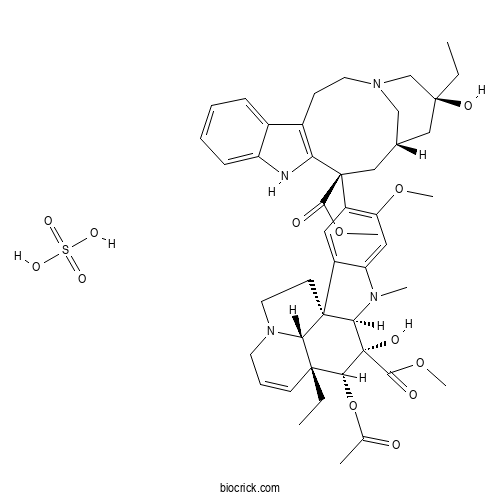
-
BCC3943
MNS
MNS is a potent and selective inhibitor of Src and Syk tyrosine kinases.
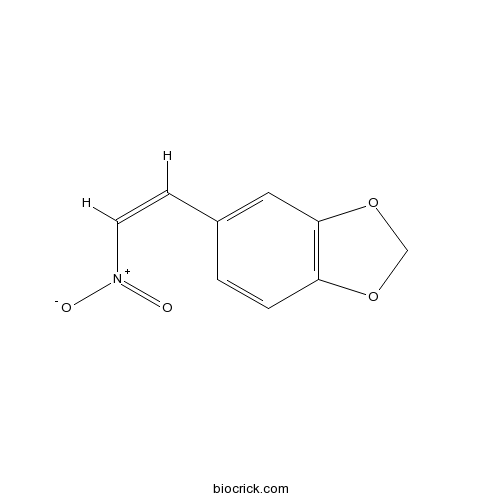
-
BCC4006
SAR405
SAR405 is a first-in-class, selective, and ATP-competitive PI3K class III (PIK3C3) isoform Vps34 inhibitor (IC50=1.2 nM; Kd=1.5 nM). SAR405 inhibits autophagy induced either by starvation or by mTOR inhibition. Anticancer activity.
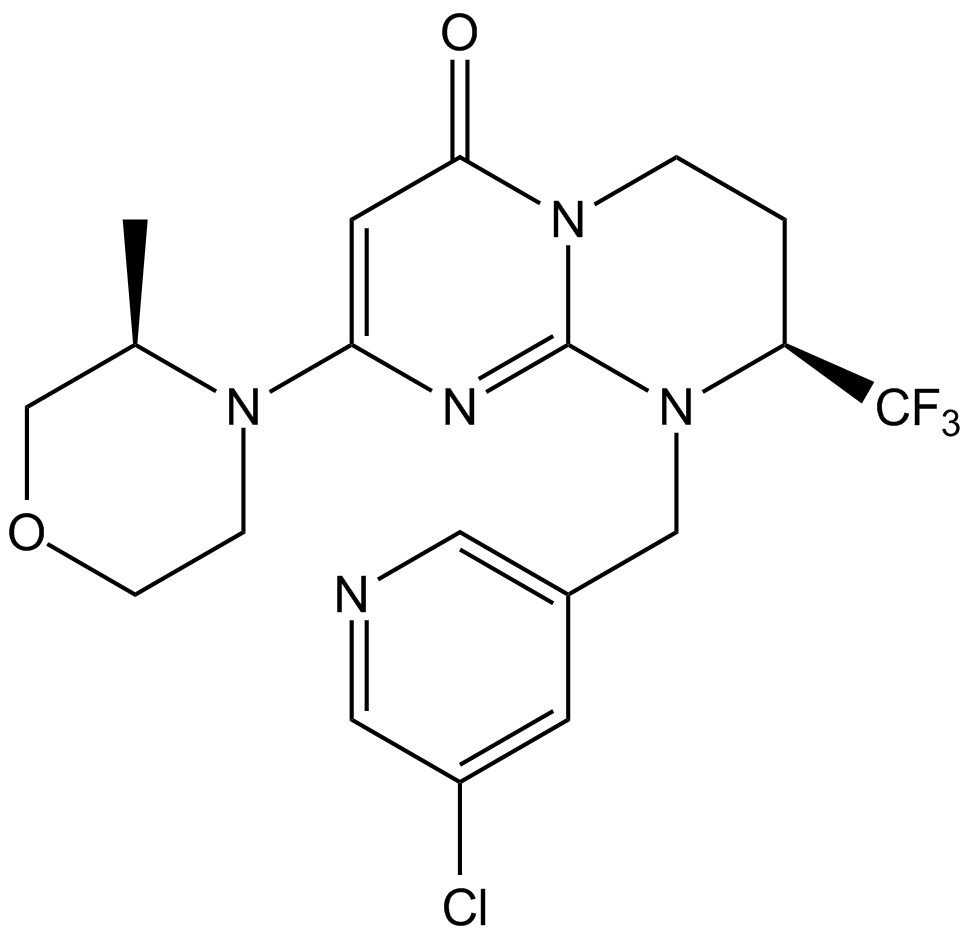
-
BCC1224
Clasto-Lactacystin β-lactone
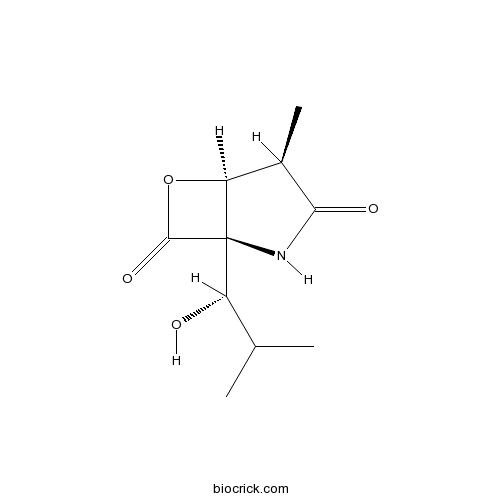
-
BCC6528
CB-5083
CB-5083 is a potent, selective and orally bioavailable p97 inhibitor with an IC50 value of 11 nM.
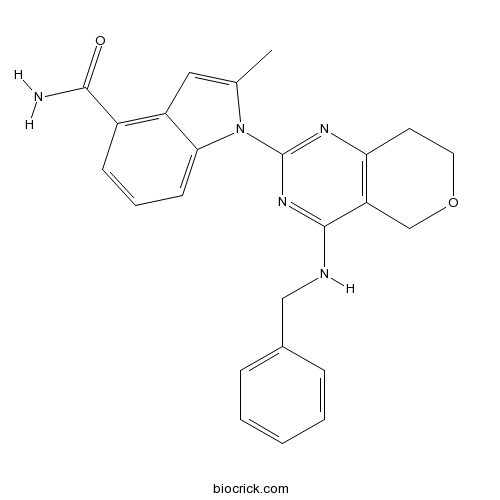
-
BCC1124
PSI
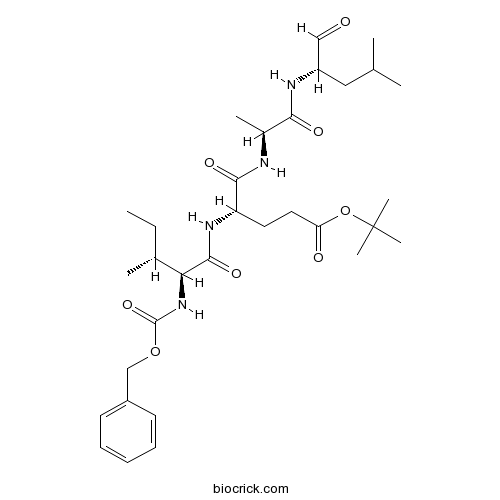
-
BCC3916
DBeQ
DBeQ is a selective, potent, reversible, and ATP-competitive p97 inhibitor, with an IC50 value of 1.5 μM and 1.6 μM for p97(wt) and p97(C522A), respectively; DBeQ also inhibits Vps4 with an IC50 of 11.5 μM.
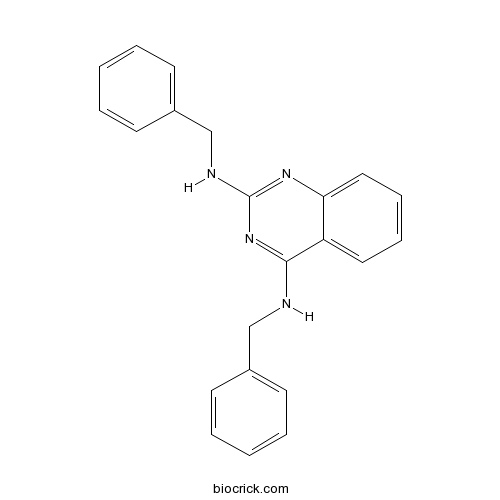
-
BCC1238
Bortezomib (PS-341)
Bortezomib (PS-341) is a reversible and selective proteasome inhibitor, and potently inhibits 20S proteasome (Ki=0.6 nM) by targeting a threonine residue. Bortezomib disrupts the cell cycle, induces apoptosis, and inhibits NF-κB. Bortezomib is the first therapeutic proteasome inhibitor to be used in humans. Anti-cancer activity.
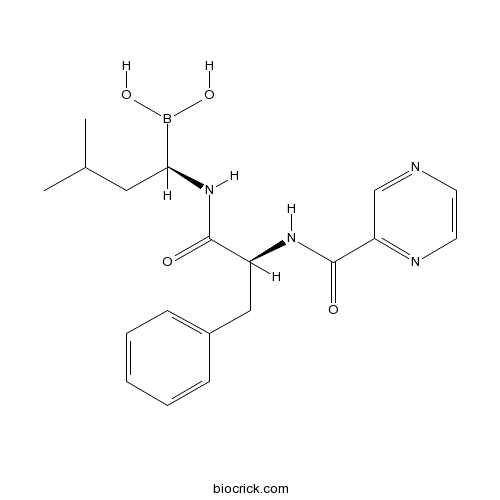
-
BCC3984
SBI-0206965
SBI-0206965 is a potent, selective and cell permeable autophagy kinase ULK1 inhibitor with IC50s of 108 nM for ULK1 kinase and 711 nM for the highly related kinase ULK2 .
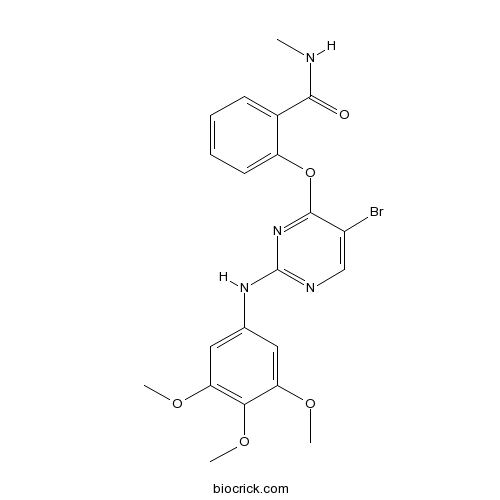
-
BCC3874
Wortmannin
Wortmannin (SL-2052; KY-12420) is a potent, selective and irreversible PI3K inhibitor with an IC50 of 3 nM. Wortmannin also blocks autophagy formation, and potently inhibits Polo-like kinase 1 (PlK1) and Plk3 with IC50s of 5.8 and 48 nM, respectively.
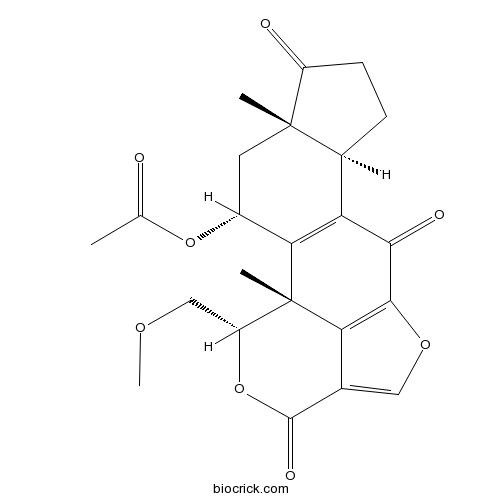
-
BCC8004
SZL P1-41
SZL P1-41 is a specific Skp2 inhibitor, binds to the F-box domain of Skp2 to prevent Skp1 association and Skp2 SCF complex formation. SZL P1-41, like Skp2 deficiency, augments p27-mediated apoptosis/senescence, while it impairs Akt-driven glycolysis. Anti-tumor activities.
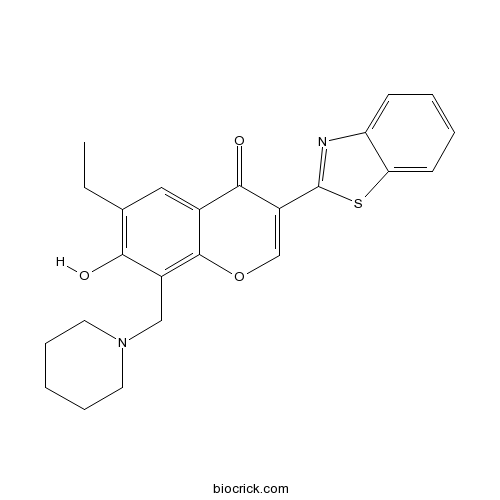
-
BCC3627
PR-619
PR-619 is a broad-range DUB inhibitor with EC50 of 3.93, 4.9, 6.86, 7.2, and 8.61 μM for USP4, USP8, USP7, USP2, and USP5, respectively.
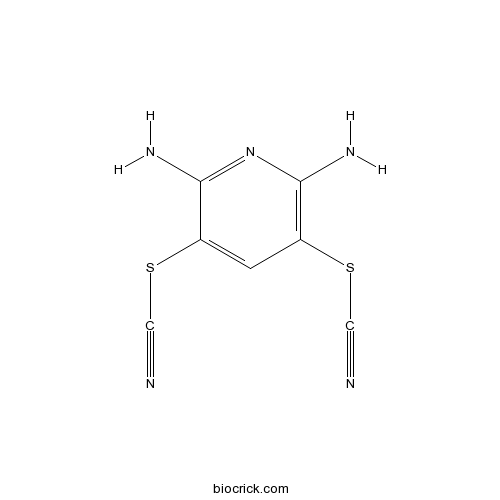
-
BCC7908
SMER 28
SMER28 is a positive regulator of autophagy acting via an mTOR-independent mechanism. SMER28 prevents the accumulation of amyloid beta peptide.
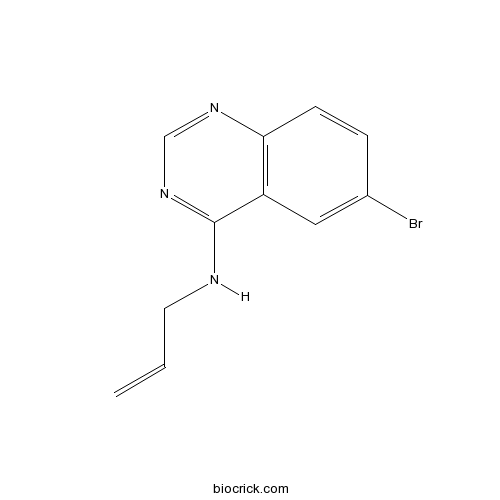
-
BCC6354
PRT 4165
PRT4165 is a potent inhibitor of PRC1 (Polycomb-repressive complex 1)-mediated H2A ubiquitylation.
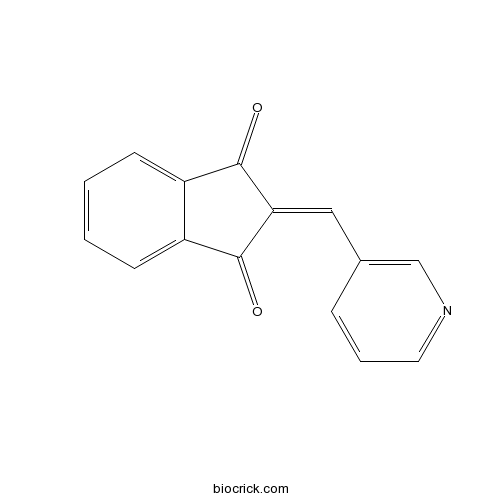
-
BCC3826
Nocodazole
Nocodazole is a rapidly-reversible inhibitor of microtubule. Nocodazole binds to β-tubulin and disrupts microtubule assembly/disassembly dynamics, which prevents mitosis and induces apoptosis in tumor cells. Nocodazole inhibits Bcr-Abl, and activates CRISPR/Cas9.
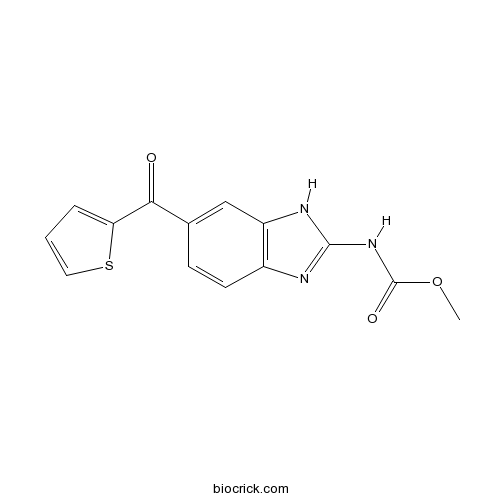
-
BCC4960
STF-62247
STF-62247 is TGN inhibitor with IC50 of 0.625μM and 16μM in RCC4 and RCC4/VHL cells,respectively.
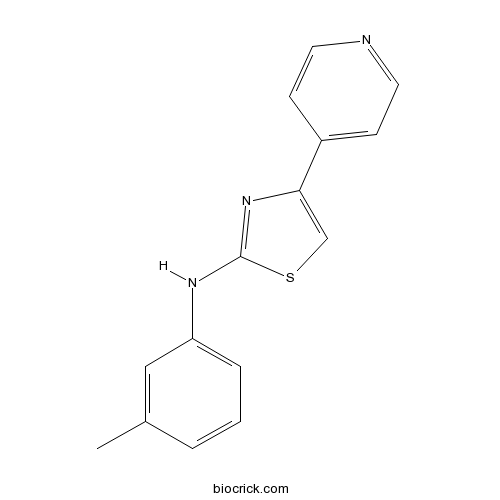
-
BCN5986
Celastrol
Tripterin (Celastrol) is a proteasome inhibitor which potently and preferentially inhibits the chymotrypsin-like activity of a purified 20S proteasome with IC50 of 2.5 μM.
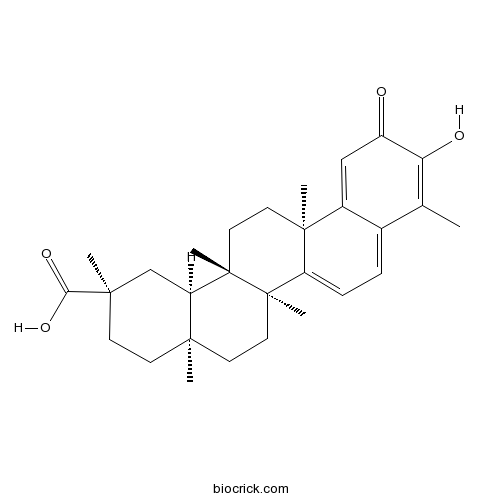
-
BCC4000
NSC697923
Selective UBE2N inhibitor,NSC697923 is a cell-permeable and selective inhibitor of the Ub-conjugating enzyme (E2) complex Ubc13-Uev1A.
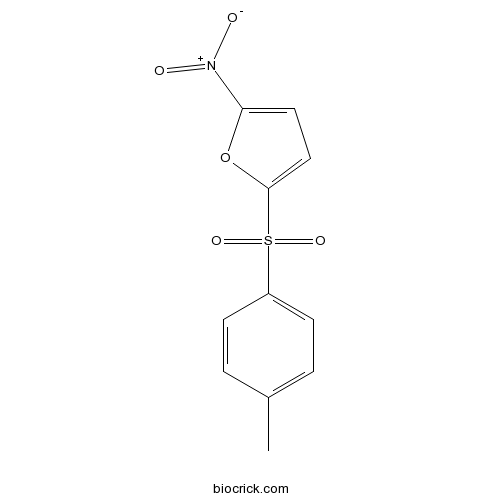
-
BCC4470
PYR-41
PYR-41 is a selective and cell permeable inhibitor of ubiquitin-activating enzyme E1 with an IC50 of < 10 μM, with little activity at E2 and E3.
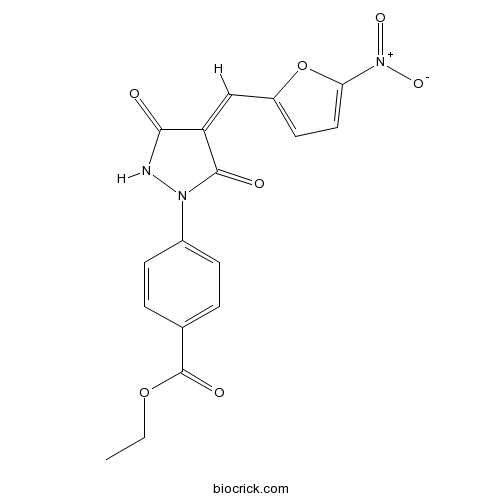
-
BCC2094
Salinosporamide A (NPI-0052, Marizomib)
Marizomib (Salinosporamide A) is a second-generation, irreversible, brain-penetrant, pan-proteasome inhibitor. Marizomib inhibits the CT-L (β5), CT-T-laspase-like (C-L, β1) and trypsin-like (T-L, β2) activities of the 20S proteasome (IC50=3.5, 28, and 430 nM, respectively).
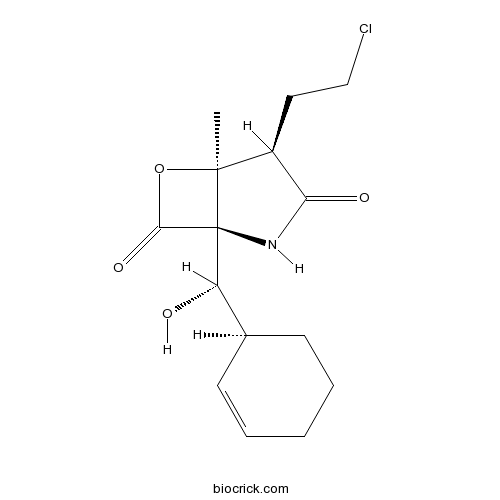
-
BCC4384
Trifluoperazine 2HCl
Trifluoperazine dihydrochloride (TFP) is an antipsychotic phenothiazine agent and a selective α1-adrenergic receptor antagonist. Trifluoperazine dihydrochloride is also a potent dopamine D2 receptor inhibitor.
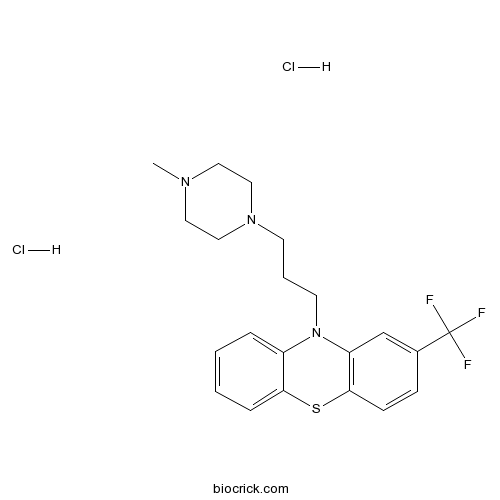
-
BCC1184
Dexamethasone (DHAP)
Dexamethasone (Hexadecadrol) is a glucocorticoid receptor agonist. Dexamethasone also significantly decreases CD11b, CD18, and CD62L expression on neutrophils, and CD11b and CD18L expression on monocytes.
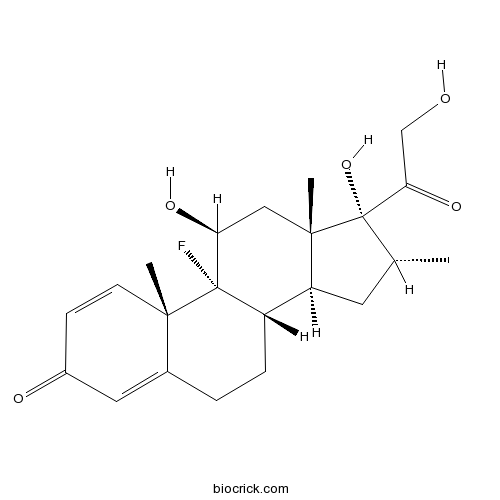
-
BCC3915
Chloroquine diphosphate
Chloroquine phosphate is a toll-like receptors (TLRs) and autophagy inhibitor. Chloroquine phosphate is an antimalarial and anti-inflammatory agent widely used to treat malaria and rheumatoid arthritis. Chloroquine phosphate is highly effective in the control of SARS-CoV-2 (COVID-19) infection in vitro.
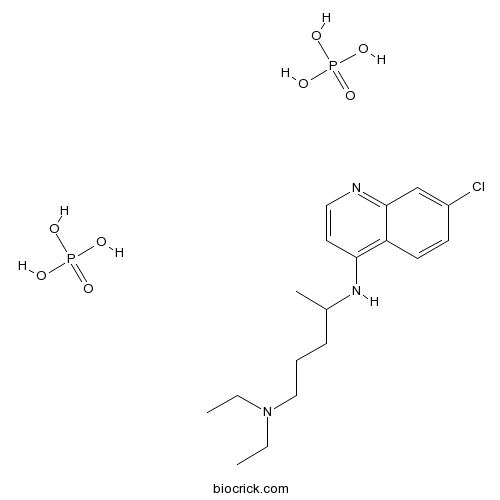
-
BCC2097
Aspirin (Acetylsalicylic acid)
Aspirin is a non-selective and irreversible inhibitor of COX-1 and COX-2 with IC50s of 5 and 210 μg/mL.
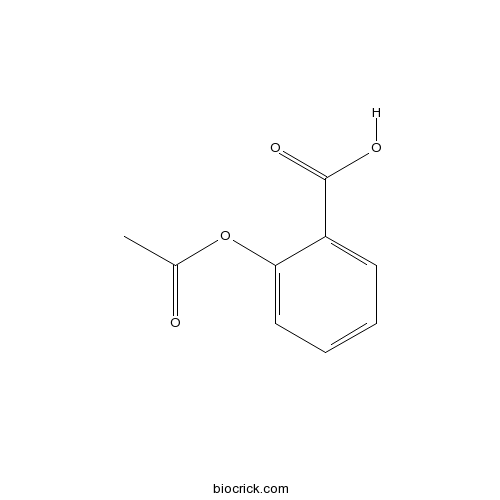
-
BCC3714
3-Methyladenine
3-Methyladenine is a PI3K inhibitor. 3-Methyladenine is a widely used inhibitor of autophagy via its inhibitory effect on class III PI3K.
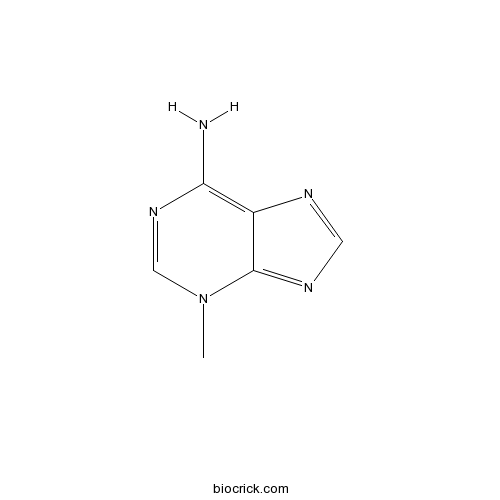
-
BCN5768
Xanthohumol
Valosin-containing protein (VCP) inhibitor; impairs autophagosome maturation,Xanthohumol is one of the principal flavonoids isolated from hops, the inhibitor of diacylglycerol acetyltransferase (DGAT), COX-1 and COX-2, and shows anti-cancer and anti-angiogenic activities.
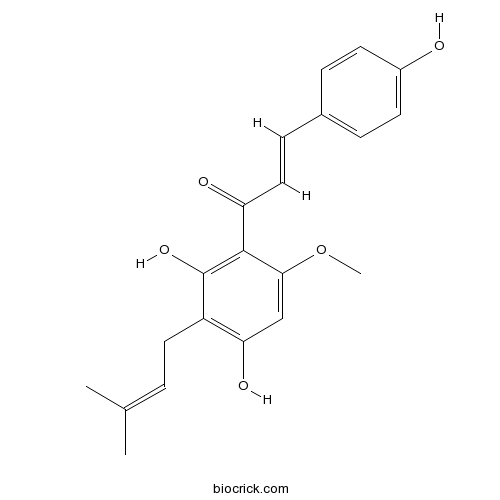
-
BCC1232
Aclacinomycin A
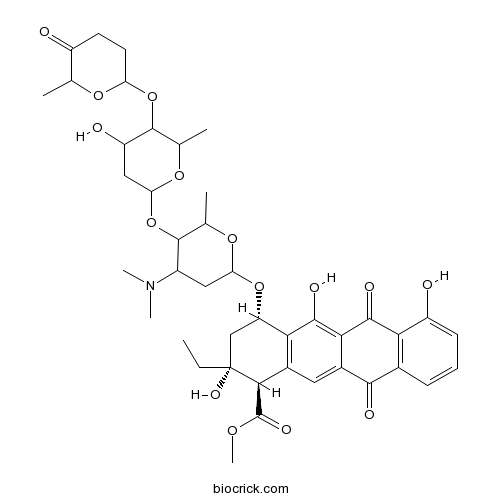
-
BCC3823
Nimodipine
Nimodipine(Nimotop) is a dihydropyridine derivative and an analogue of the calcium channel blocker nifedipine, with antihypertensive activity.
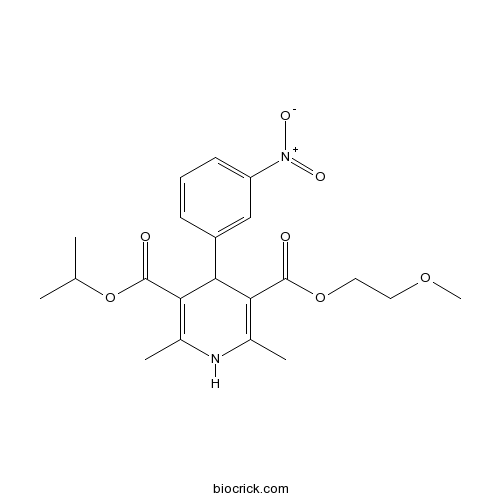
-
BCN3894
Gliotoxin
Gliotoxin is a secondary metabolite, the most abundant mycotoxin secreted by A. fumigatus, inhibits the phagocytosis of macrophages and the immune functions of other immune cells . Gliotoxin inhibits inducible NF-κB activity by preventing IκB degradation, which consequently induces host-cell apoptosis. Gliotoxin activates PKA and increases intracellular cAMP concentration; modulates actin cytoskeleton rearrangement to facilitate A. fumigatus internalization into lung epithelial cells.
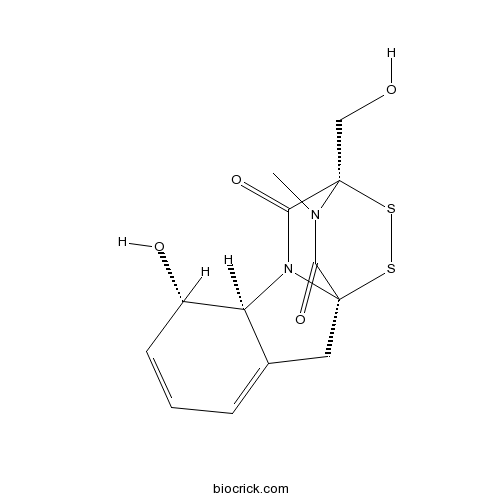
-
BCC6152
SMER 3
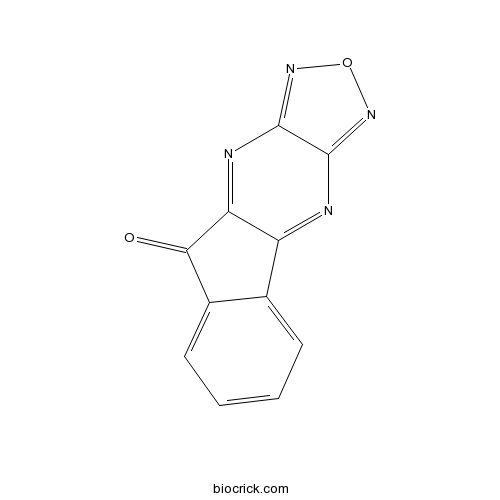
-
BCC3918
(±)-Bay K 8644
Ca2+ channel activator (L-type); aids generation of iPSCs from MEFs
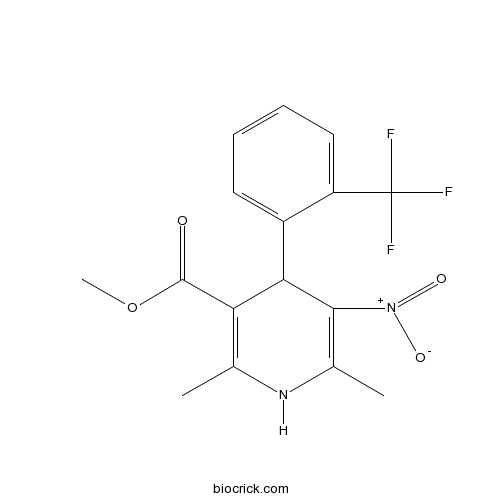
-
BCN5973
Artemether
Artemether is an antimalarial for the treatment of resistant strains of falciparum malaria.
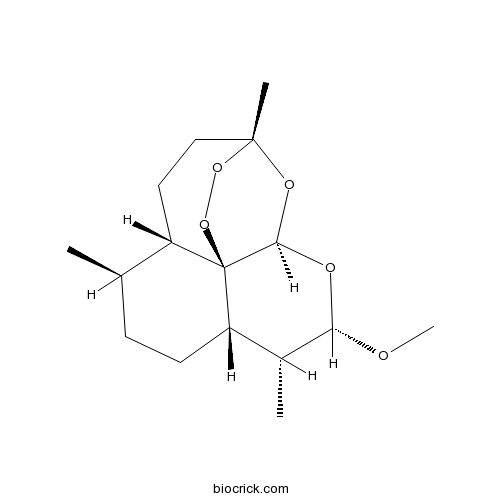
-
BCC1254
Omeprazole
Omeprazole (H 16868), a proton pump inhibitor (PPI), is available for treatment of acid-related gastrointestinal disorders. Omeprazole shows competitive inhibition of CYP2C19 activity with a Ki of 2 to 6 μM. Omeprazole also inhibits growth of Gram-positive and Gram-negative bacteria.
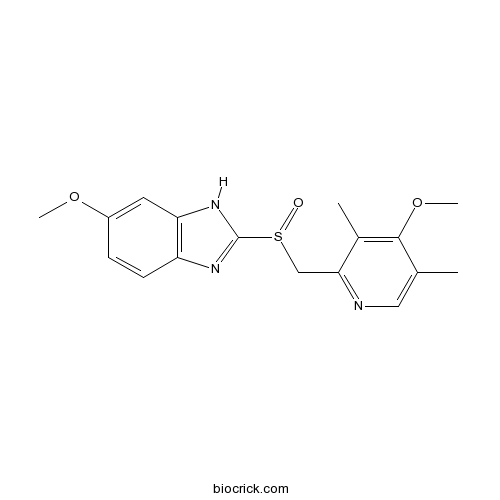
-
BCC4379
Divalproex Sodium
Divalproex Sodium, consisting of a compound of sodium valproate and valproic acid in a 1:1 molar relationship in an enteric coated form, is a HDAC inhibitor, used in the treatment for epilepsy.
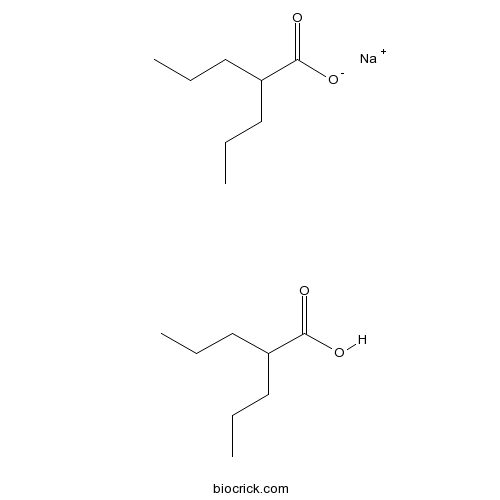
-
BCC3919
Concanamycin A
Concanamycin A (Antibiotic X 4357B) is a macrolide antibiotic and a specific vacuolar type H+-ATPase (V-ATPase) inhibitor.
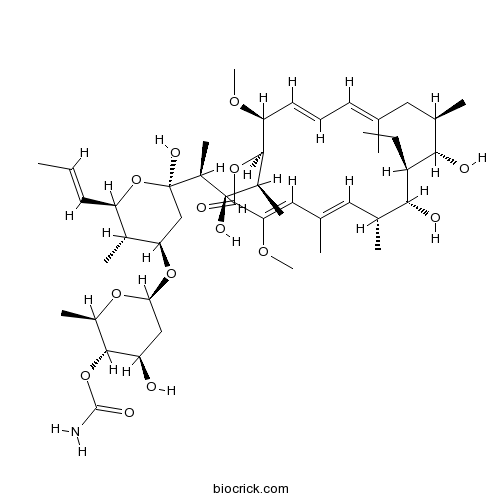
-
BCC2093
CEP-18770
Delanzomib(CEP-18770) is a novel orally-active inhibitor of the chymotrypsin-like activity of the proteasome that down-modulates the nuclear factor-kappaB (NF-kappaB) activity.
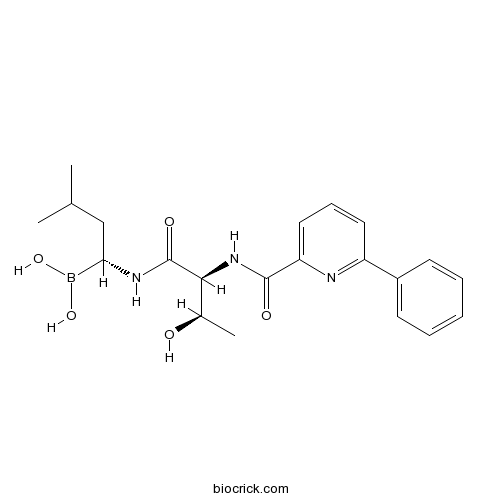
-
BCC3686
WP1130
Degrasyn (WP1130) is a cell-permeable deubiquitinase (DUB) inhibitor, directly inhibiting DUB activity of USP9x, USP5, USP14, and UCH37. Degrasyn has been shown to downregulate the antiapoptotic proteins Bcr-Abl and JAK2.
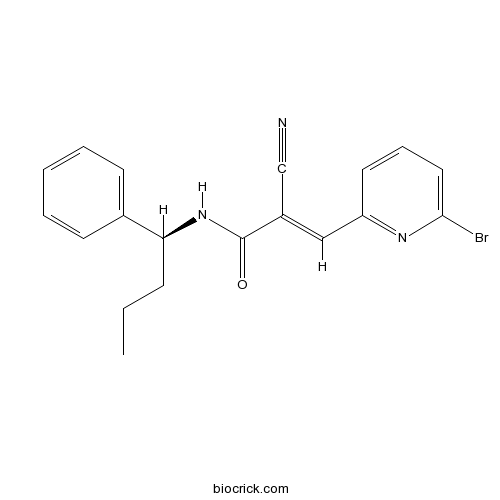
-
BCC3589
AM 114
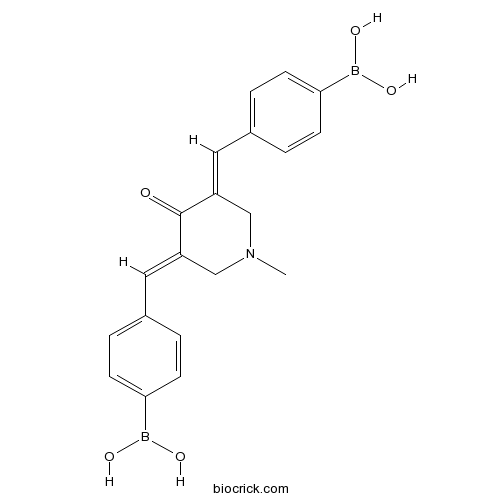
-
BCC1145
Carfilzomib (PR-171)
Carfilzomib is an irreversible proteasome inhibitor with an IC50 of 5 nM in ANBL-6 and RPMI 8226 cells.
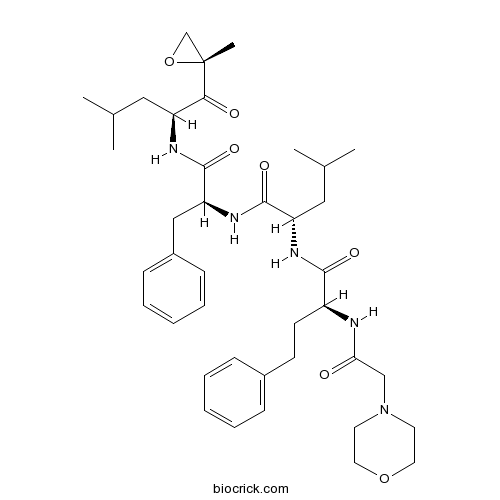
-
BCC3914
Bafilomycin A1
Bafilomycin A1, a macrolide antibiotic isolated from the Streptomyces species, is a specific inhibitor of vacuolar-type H+ ATPase (V-ATPase). Bafilomycin A1 inhibits autophagy and induces apoptosis.
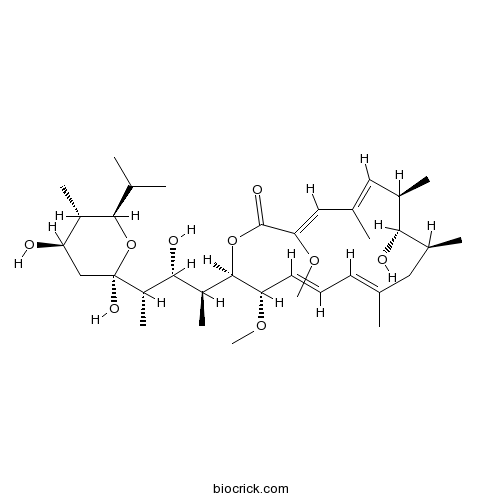
-
BCC1146
Oprozomib (ONX-0912)
Oprozomib (ONX 0912; PR047) is an orally bioavailable inhibitor for CT-L activity of 20S proteasome β5/LMP7 with IC50 of 36 nM/82 nM.
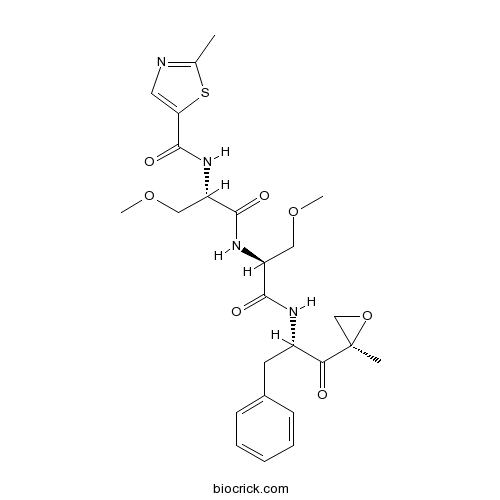
-
BCC2095
ONX-0914 (PR-957)
ONX-0914 (PR-957) is a potent and selective inhibitor of immunoproteasome subunit LMP7.
